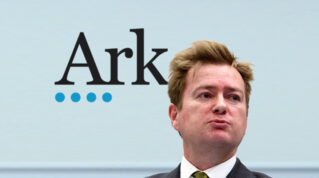There have been some false dawns over the past decade, but the Department for Education-funded National Leaders of Governance (NLGs) programme gives me hope that governance is finally taking its rightful place as part of school and trust improvement.
NLGs have been around since 2012. I lobbied for the role back then and was on the initial National College for School Leadership working group that advised on the programme’s first iteration. Unfortunately, the newly reformed version couldn’t include a change of title (understandably, the DfE wanted to show the equivalence with NLEs); but the 2021 version is a very different proposition.
For many years, ministers have said that effective governance is essential to school and trust improvement. If we don’t get governance right, we are likely to let pupils down. But the practice has never kept pace with these sentiments. Now, five fundamental changes ensure it will.
First, the role is different. NLGs Mark I were experienced chairs of ‘good’ schools who gave their time to mentor other chairs. NLGs this time around are experienced governors, trustees and governance professionals who have had to demonstrate not just substantial governance experience but also the expertise and track record needed to carry out a professional consultancy role.
Chairs supporting chairs is another important part of the system, and it is my only regret about the change that this contribution no longer has a national profile or official acknowledgement. Mentoring and informal support will go on through many channels, often local groups and contacts, exemplifying what is best about the governance community.
The expert group I sat on last autumn, which advised on these reforms, recommended that the DfE continue to support mentoring. We still await the outcome of the spending review to see if that’s possible, but in the meantime many former NLGs and other chairs continue to offer peer support, and we are grateful to them.
If we don’t get governance right, we are likely to let pupils down
The second key reform of NLGs is that the role is now paid. For any other school improvement role, this would be a no-brainer, unworthy of comment. But those volunteering to govern were previously expected to find the time for this additional duty of school-to-school support without pay. The criteria for the role and the assessment process were also transformed as befits a paid role, and success in improving school or trust governance tested.
Third, trust and trust governance expertise are now included in the programme. Ten years ago, most schools were local authority maintained schools. Now that trusteeship and governing multi-academy trusts is commonplace, NLGs will have the knowledge, experience and support from NGA to make a real difference to these organisations.
Next, NLG activity will be coordinated and quality assured. This will be the National Governance Association’s role. Previously, the system was supposed to work by osmosis, with some well-connected NLGs receiving many requests for help while others felt left on their own. Now, most of the new NLG work will be external reviews of governance, using a bespoke framework. NLGs will be assigned to work with a trust or school put forward by the DfE or local authority based on their experience, and the lesson they learn will be shared.
And finally, NLG expertise will be targeted first and foremost at trusts and schools that need it most. The DfE will be paying for reviews of trusts, and local authorities for those of maintained schools identified as requiring governance improvement. This is why NGA’s board of trustees knew we had to bid to run this contract. Improving governance is our charitable object, and we have been developing the consultancy experience and capacity to do it for eight years.
Large numbers have applied for the new posts, and the DfE has already designated over 60 after our thorough assessment process.
As these substantial changes embed, the good practice outlined in the ESFA’s trust handbook and the DfE’s governance handbook still applies: An external review of governance every three years keeps practice sharp. NLGs are available for commission now, so contact the NGA to start the process.
















Your thoughts